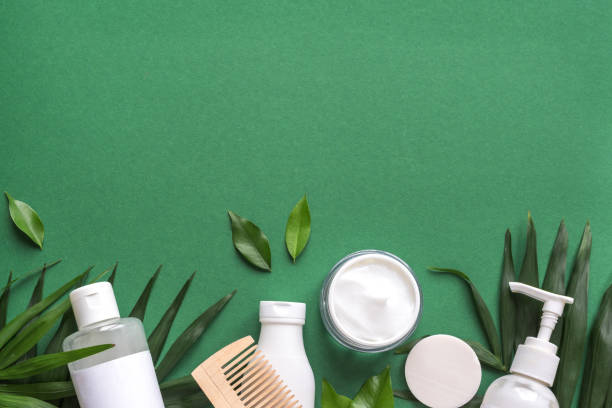How-To Decide On Natural And Organic Skin Care As Well As Beauty Products


It can be a challenge to choose the right products for beauty and skincare for your skin, due to the numerous options available. Some ask for recommendations for friends, while others search the Internet to determine which products should be considered.
People with an extensive knowledge of skin care tend not to use natural and organic products. Why? Perhaps because they are the safest and least harmful option.
Natural and organic skincare products offer many advantages with them, such as a lower risk of irritation, no adverse effects, gentler skin care, the ability to reduce wrinkles, a lower chance of allergic reactions and a lower risk of skin aging.
It's crucial to know that finding natural and organic products for beauty isn't as easy as you may think.
There are some greenwashed goods that are available on the market, for instance. They trick consumers into thinking they are sustainable and eco-friendly, but they are packed with harmful chemicals and manufactured with unethical practices.
Since we want to assist everyone who is a fan of skincare, we've written a guide on how to choose the best organic and natural skincare products. Find out more tips here!
1. Know which ingredients to stay clear of
One of the most effective ways to prevent getting caught in the trap of greenwashed products is to understand which ingredients to avoid and which ones to look out for.
We sought out Dermatologists Singapore doctors about which ingredients they would recommend we stay away from. They all recommended parabens and mineral oils, alcohols, as well as aluminum salts and synthetic fragrances.
Mineral oils are not proven to have any advantages for skin, and parabens along with aluminum salts can cause cancer. Mineral oils are known for blocking pores, making it hard for the skin to breathe.
Alcohol however will reduce the growth of the bacteria that live on our skin however it causes more harm than beneficial.
Synthetic fragrances can be included in the ingredients list to make products more attractive. However, they're not essential oils.
In terms of the components you'd like to search for On the other hand dermatologists advise Vitamin C, Zinc, the hyaluronic acid, tea tree oil, rose water coffee beans, sea salt, argan oil, and botanicals.
2. Make sure you have clean formulas
It is crucial to confirm that the ingredients used in the product are ethically sourced. If they have in fact ethically sourced, then the product has clean formulas.
You must be aware of the ingredients that are used in a recipe. Good products, for example are made with the oils of plants instead of mineral oils.
Another instance is when a product uses natural active ingredients that are extracted from plants or produced through biotechnology.
We also can support products that use natural preservatives that are permitted by organic standards, like Salicylic Acid, Benzoic Acid and Dehydroacetic Acid in addition to others.
It is crucial to confirm the formula, as it will prove that the company has taken great care to create a natural, organic beauty product. This is based on how the ingredients were procured and packaged, the method of packaging, and how it is wrapped.
3. Check for the certifications
According to Medium, skincare and beauty products with labels that read "made with organic ingredients" generally contain about 70% of what they claim to contain. This isn't a problem however, you'll not know what the other 30% of ingredients could do to your skin.
Best handmade soaps is charged with certifying beauty and skincare products made in the US. The following certifications are worth checking out for:
100 organic: applies to products that contain only organically produced ingredients, without water or salt.
Organic means that the products contain a minimum of 95% organically grown ingredients.
It is made with over 70% organic ingredients: if the product is certified with this certification, the manufacturer is obliged to list at least 3 organic ingredients on the label.
These products contain less than 70% organic components. They are not allowed to mention the word "organic" on their labels.
4. Learn about the claims that are regulated
Some common claims on cosmetics and lotions are hypoallergenic formulation, no tears for skin that is sensitive; organic, and fragrance-free. These claims are typically seen on the labels of creams, cleanser for skin, lipsticks, and toners.
The claims made aren't controlled or supported by any regulatory body. Manufacturers are able to put them on their packaging however they like.
If you are looking to beat these manufacturers, you have be aware of every ingredient and what each of them is good for and bad for. It seems like a lot of work to verify claims and ingredients however it can turn you into a better and more informed consumer.
Conclusion
Here are our top suggestions for choosing natural and organic skincare products to enhance your skincare routine. It's difficult to make the commitment to use natural and organic products, but soon you'll be rewarded!
